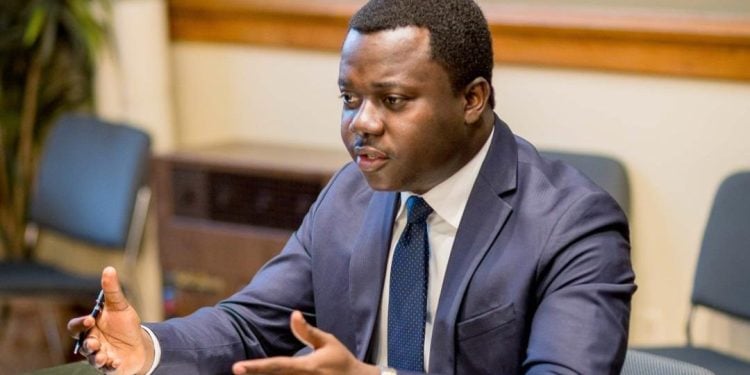The political landscape in Ghana has been roiled by a recent incident involving Rev. John Ntim Fordjour, a former Deputy Minister of Education and Member of Parliament for Assin South, and the National Intelligence Bureau (NIB). The controversy began with Rev. Fordjour’s public allegations regarding two suspicious flights that landed at Kotoka International Airport, Ghana’s main airport. He characterized the circumstances surrounding these flights as “shady” and suggested potential connections to illicit activities such as drug trafficking and money laundering. These accusations sparked a heated exchange between the government and the opposition, with government officials swiftly dismissing the claims as baseless and unsubstantiated.
The situation escalated dramatically when NIB officials reportedly surrounded Rev. Fordjour’s residence in what appears to be an attempt to arrest him. This action triggered immediate condemnation from the opposition New Patriotic Party (NPP), who characterized the incident as a politically motivated attempt to silence a critical voice. Justin Kodua Frimpong, the General Secretary of the NPP, publicly denounced the NIB’s actions on social media, using the hashtag #SayNoToStateIntimidation to highlight what he described as a growing trend of state-sponsored harassment targeting opposition figures. He directly linked the attempted arrest to Rev. Fordjour’s outspokenness regarding the alleged airport irregularities, suggesting the government was retaliating against him for raising concerns about potential security breaches.
The NPP’s accusations paint a troubling picture of a government increasingly intolerant of dissent and willing to utilize state security agencies to suppress critical voices. The incident raises serious concerns about the protection of whistleblowers and the freedom of expression in Ghana’s political climate. Rev. Fordjour, known for his vocal stance on issues of governance and national security, appears to have become a target due to his willingness to challenge the government’s narrative. The lack of transparency surrounding the NIB’s actions further fuels suspicions of an orchestrated attempt to intimidate and silence the opposition. The NIB has not issued any official statement explaining the reasons for their presence at Rev. Fordjour’s residence, nor have they clarified whether a warrant for his arrest was issued.
This incident has intensified the already tense political atmosphere in Ghana, highlighting the escalating tensions between the ruling party and the opposition. The NPP has framed the incident as part of a broader pattern of intimidation tactics employed by the government to quell dissent and maintain control. They have called on civil society organizations and the international community to intervene and safeguard democratic principles in Ghana. The lack of official clarification from the government and the NIB only serves to deepen the distrust and heighten concerns about potential abuses of power.
The situation underscores the fragility of democratic institutions and the importance of protecting freedom of expression. The allegations of politically motivated persecution raise serious questions about the rule of law and the neutrality of state security agencies. The international community’s attention is being drawn to Ghana’s political climate, with concerns growing about the government’s commitment to democratic principles. The NPP’s call for intervention highlights the need for independent investigations and oversight to ensure accountability and prevent further erosion of democratic freedoms.
The unfolding events surrounding Rev. Fordjour’s case have broader implications for Ghana’s political future. The incident has become a focal point in the ongoing struggle between the ruling party and the opposition, highlighting the deep divisions within the country’s political landscape. The allegations of state-sponsored intimidation and the suppression of dissent could have a chilling effect on public discourse and political participation. The outcome of this situation will likely have a significant impact on public trust in the government and the future stability of Ghana’s democracy. It remains to be seen whether the government will address the concerns raised by the opposition and take steps to ensure transparency and accountability in the actions of its security agencies. The international community’s response to this incident will also play a crucial role in shaping the course of events and safeguarding democratic principles in Ghana.














